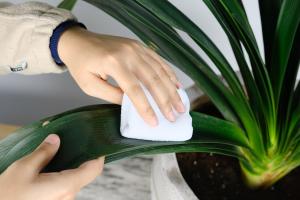How Plants Drink Water for Kids
Plants need water to survive, and they get their water from the soil through their roots. But have you ever wondered how water actually gets from the soil to the different parts of the plant? Here's a quick guide on how plants drink water:
The Root System
The root system of a plant is responsible for absorbing water and nutrients from the soil. The roots have tiny hair-like structures called root hairs that increase the surface area for absorption. As water is absorbed by the roots, it moves into the root cells and then into the xylem tissue.
The Xylem Tissue
The xylem tissue is like a straw that runs up the stem and into the leaves of a plant. It is responsible for transporting water and minerals from the roots to the rest of the plant. The xylem tissue is made up of small tube-like structures called vessels that are connected in a continuous network from the roots to the leaves.
Transpiration
Water is transported through the xylem tissue in a process called transpiration. Transpiration is the process of water evaporating from the leaves of a plant. As water evaporates from the leaves, it creates a negative pressure that draws water up from the roots and into the xylem tissue. This process is similar to sipping water through a straw.
The Role of Stomata
Stomata are small openings on the leaves of a plant that allow for gas exchange. During the day, most plants keep their stomata open to let in carbon dioxide for photosynthesis. However, this also means that water can evaporate from the leaves through the stomata. To prevent too much water loss, plants can control the size of their stomata. Some plants have special structures around the stomata called guard cells that can shrink or expand depending on how much water the plant needs.
Conclusion
Plants have a complex system for absorbing and transporting water, which is essential for their survival. The root system absorbs water, which then moves into the xylem tissue and is transported to the leaves through transpiration. Stomata on the leaves play a role in regulating water loss from the plant. By understanding how plants drink water, we can better care for and appreciate the amazing world of plants around us.

 how many times do yo...
how many times do yo... how many planted tre...
how many planted tre... how many pine trees ...
how many pine trees ... how many pecan trees...
how many pecan trees... how many plants comp...
how many plants comp... how many plants can ...
how many plants can ... how many plants and ...
how many plants and ... how many pepper plan...
how many pepper plan...































